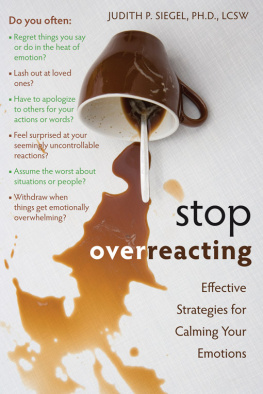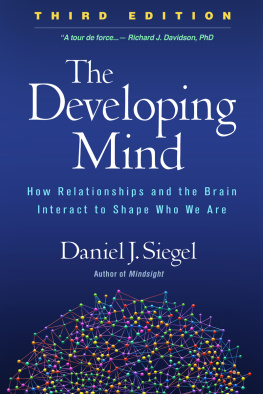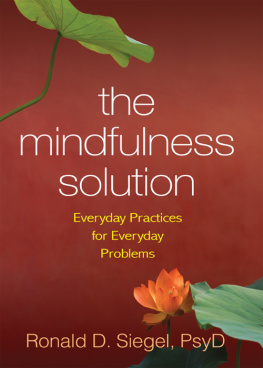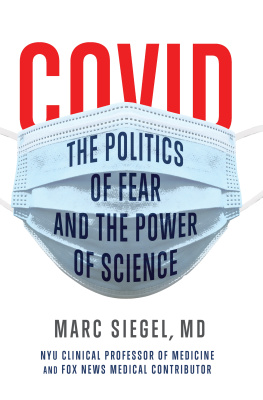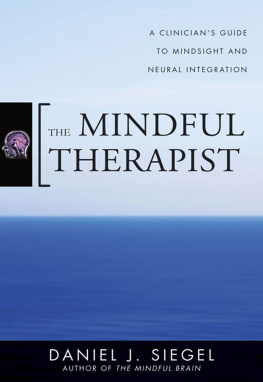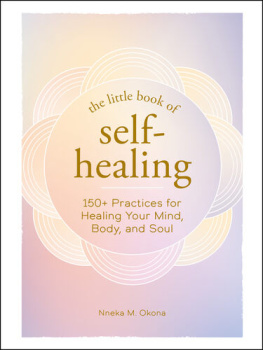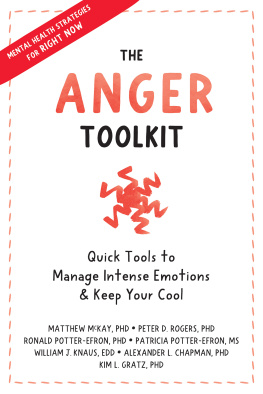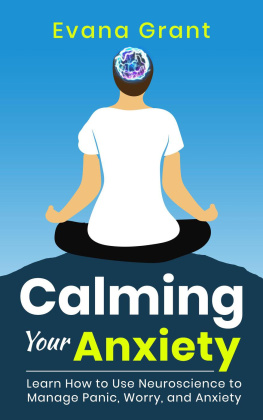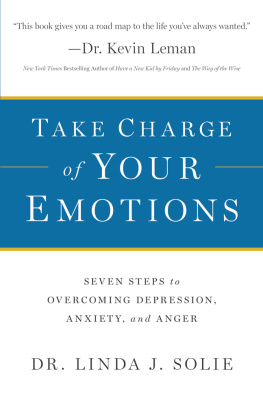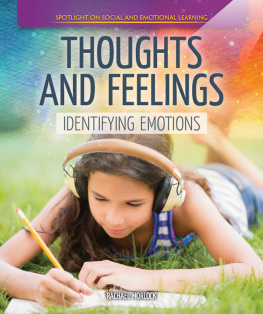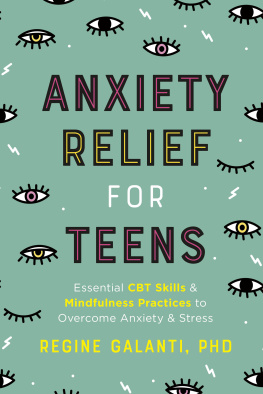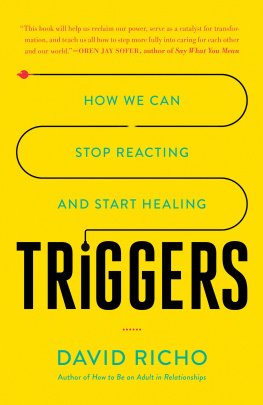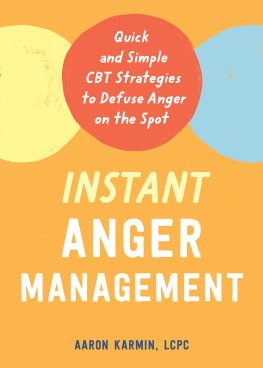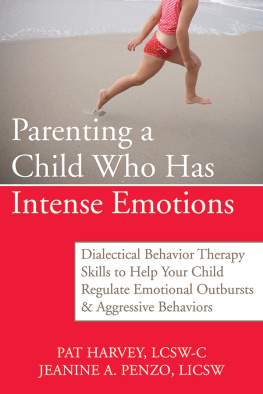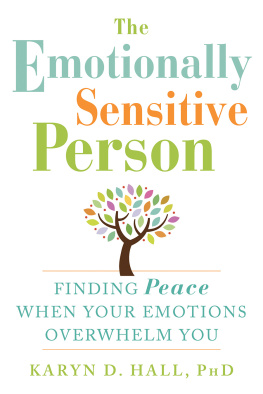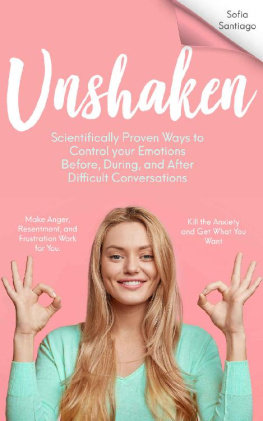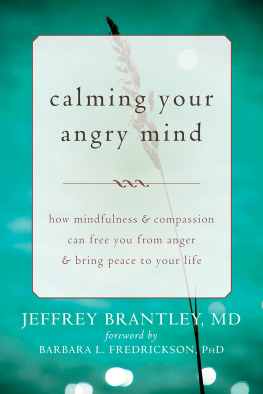Judith P. Siegel, Ph.D., LCSW, is associate professor at Silver School of Social Work at New York University. She has published extensively in the field of family therapy and has presented throughout the United States. She has also appeared on The Today Show and Good Morning America.
Judith Siegel has given us a book with the force of revelation. Using exciting new research findings on brain physiology, she connects the emotional self to the body in which it lives in a manner that is both readable and wonderfully engaging. Stop Overreacting is a real tour de force; a book that is impossible to put down.
Maggie Scarf, author of Intimate Partners: Patterns in Love and Marriage and Secrets, Lies, Betrayals: The Body/Mind Connection
Judith Siegels Stop Overreacting captures the essential emotional problems that cause people distress. Even better, she clearly delineates very useful and accessible strategies for resisting emotional overload and destructive responses to emotional situations. Stop Overreacting is a valuable guidebook for navigating the basic struggles of our emotional world.
Beth Jacobs, Ph.D., clinical psychologist, adjunct faculty member of Northwestern Universitys Feinberg School of Medicine, and author of Writing for Emotional Balance
Finally, a practical book that gets at what the real triggers are for overreacting in everyday situations. A terrific integration of varied ideas about how to understand present-day overreactions in light of past experiences, especially past relationship experiences. This book goes way beyond most guides to help readers think rationally and mindfully.
Alan S. Gurman, Ph.D., emeritus professor of psychiatry at the University of Wisconsin School of Medicine and Public Health

Publishers Note
This publication is designed to provide accurate and authoritative information in regard to the subject matter covered. It is sold with the understanding that the publisher is not engaged in rendering psychological, financial, legal, or other professional services. If expert assistance or counseling is needed, the services of a competent professional should be sought.
Distributed in Canada by Raincoast Books
Copyright 2010 by Judith P. Siegel
New Harbinger Publications, Inc.
5674 Shattuck Avenue
Oakland, CA 94609
www.newharbinger.com
All Rights Reserved
Acquired by Melissa Kirk; Cover design by Amy Shoup;
Edited by Elisabeth Beller; Text design by Tracy Marie Carlson
Epub ISBN: 9781608820726
The Library of Congress has Cataloged the Print Edition as:
Siegel, Judith P.
Stop overreacting : effective strategies for calming your emotions / Judith P. Siegel.
p. cm.
Includes bibliographical references.
ISBN 978-1-57224-723-9
1. Emotions. I. Title.
BF531.S565 2010
152.4--dc22
2010011986
To Mitchell and Jennathe next generation of writers
Contents
Acknowledgments
Although many years have passed since I worked at Torontos Hospital for Sick Children, my interest in neurobiology was sparked by the neurologists and patients I was privileged to work with there. I am deeply indebted to Dr. Gordon Murphy, Dr. Keith Meloff, and, above all, Dr. John Stobo Prichard, who opened my eyes to the mysteries of the brain. Shirley Stinson, who chaired the Social Work Department, was my supervisor and mentor and taught me how to translate book learning into competent clinical practice. The families I have worked with in Canada and in the United States have been my best instructors, and I am grateful to have had the opportunity to learn through my work with them.
I would also like to acknowledge my colleagues at the Silver School of Social Work at New York University. Special thanks go to Ann Marie Mareno, whose skill and commitment made it easier for me to concentrate on my writing projects.
Thanks are also due to my editors at New Harbinger, whose push for clarity improved this manuscript considerably. Melissa Kirk and Jess Beebe encouraged me to develop exercises that could help people acquire the kind of insight that is usually only possible in a therapy environment. The level of self-help that they envision for New Harbinger readers is inspiring. I offer my most sincere thanks to my copy editor, Elisabeth Beller, who went beyond my expectations in order to help organize and complete the manuscript. Thanks also go to proofreader Jasmine Star.
I would also like to acknowledge family members who have supported this project from its inception. My sisters Shelley Fingerhut and Wendy Sokolowski Pezim and mother, Lillian Siegel, are always there for me when I need them. I am particularly grateful to my sister Debbie Naftolin, who has frequently helped me regain my own emotional equilibrium and who provided useful suggestions to improve and even name this book.
But above all, I would like to acknowledge two amazing teenagers who have pitched in and helped with Danny so that this book could be completed on time.
Introduction
Although we live in a complex world filled with challenges and disappointments, some people are better equipped to handle it than others. Why is it that some can reflect and respond to stressful situations in an honest but calm way while others just explode? Why do some withdraw or get deeply pessimistic when others can just let a troubling comment go? Have there been times when you found yourself so angry that you couldnt see straight? Do people ever tell you that your interpretation of events is way out of line? Have reactions that seemed justified at the time proven to be inappropriate and damaging? This book is written for people who realize that their behavior is often influenced by emotional turbulence that they dont understand and cant seem to control.
For years I have worked with people who have suffered the consequences of intense reactions. Only in hindsight can they reevaluate the actions that have hurt the people they love and complicated their lives. Perhaps this is your story as well. Perhaps you have lost your temper or made a hasty decision that has haunted you for years. If looking back on the things you have done in the past fills you with regret, then the information in this book may help you turn things around.
My approach to this problem is based on years of experience, as well as the latest research. In 1990, President George Bush announced financial support for research on neurobiology and started what is now dubbed the Decade of the Brain. This research confirmed the mind-body connection and has spawned hundreds of additional research studies that explain how the brain regulates emotions. Much of this research confirms my clinical experience with individuals, couples, and families who have struggled with problems that are created or exacerbated by emotional overreactions.
I view overreaction as an experience that involves both mind and body, past and present. In the first section of this book, I explain how beliefs, emotions, and physiological responses combine to create overreactions. In the second section, I examine envy, rejection, criticism, and controleveryday dynamics that frequently trigger overreactions. These chapters illustrate how an overreaction begins and unfolds, as well as ways to keep a more balanced perspective. In the third section, I present common situations that may arise in work and family relationships. Whether with coworkers, supervisors, customers, employees, spouses, parents, or children, overreactions can create havoc and complicate our lives. In the final section of this book, I review different strategies that will help you restore calm so that you can access responses that are thoughtful and appropriate. I also suggest ways to challenge beliefs and make peace with the past so that you will be less likely to react to situations that have triggered overreactions in the past.

